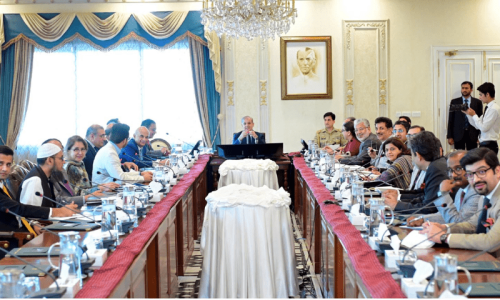ISLAMABAD: Expressing its “deep concern and anguish” over the latest execution of opposition politicians in Bangladesh, Pakistan has called for implementation of the tripartite agreement of 1974.
“We have noted with deep concern and anguish the unfortunate executions of Bangladesh Nationalist Party (BNP) leader Salahuddin Quader Chowdhury and Ali Ahsan Mujahid. Pakistan is deeply disturbed at this development,” a statement issued by the Foreign Office on Sunday said.
“As emphasised earlier, we have also been noting the reaction of the international community on the flawed trials in Bangladesh related to events of 1971,” it said.
World community urged to take notice of ‘flawed trials’
“There is a need for reconciliation in Bangladesh in accordance with the spirit of the Pakistan-India-Bangladesh agreement of 9th April 1974. The agreement calls for a forward-looking approach in matters relating to 1971. This would foster goodwill and harmony.”
BNP leader Chowdhury and Bangladesh Jamaat-i-Islami secretary general Ali Ahsan Mohammad Mujahid were hanged at the Dhaka Central Jail on Sunday, allegedly for their role in the 1971 war.
Interior Minister Chaudhry Nisar Ali Khan also termed the execution a “violation of international laws and human rights and an act below morality”.
“I am surprised over the silence of the world community, particularly the international organisations working for human rights and justice, over these murders,” he said in a statement.
“I am sad because we could do nothing for those whose fault was that they remained loyal to Pakistan and supported a democratic and constitutional government some 45 years ago,” he said.
Chaudhry Nisar urged the Bangladesh government to cool down the fire and stop its policy to take revenge.
He said the people of Pakistan and Bangladesh wanted to advance their brotherly and friendly relations while forgetting their tense past. However, he alleged, there was a group in Bangladesh that did not want to see the people of the two countries having brotherly relations.
“We have an idea as to who is behind this group and what role they had played in 1970-71. We also know about the forces which are stopping the peoples of the two countries from coming closer and the elements behind this conspiracy,” he said.
The minister said that he would raise the issue during the federal cabinet’s meeting.
Chaudhry Nisar had issued a similar statement in December 2013 over the execution of Abdul Quader Molla, a JI leader, in Bangladesh.
Published in Dawn, November 23rd, 2015













































